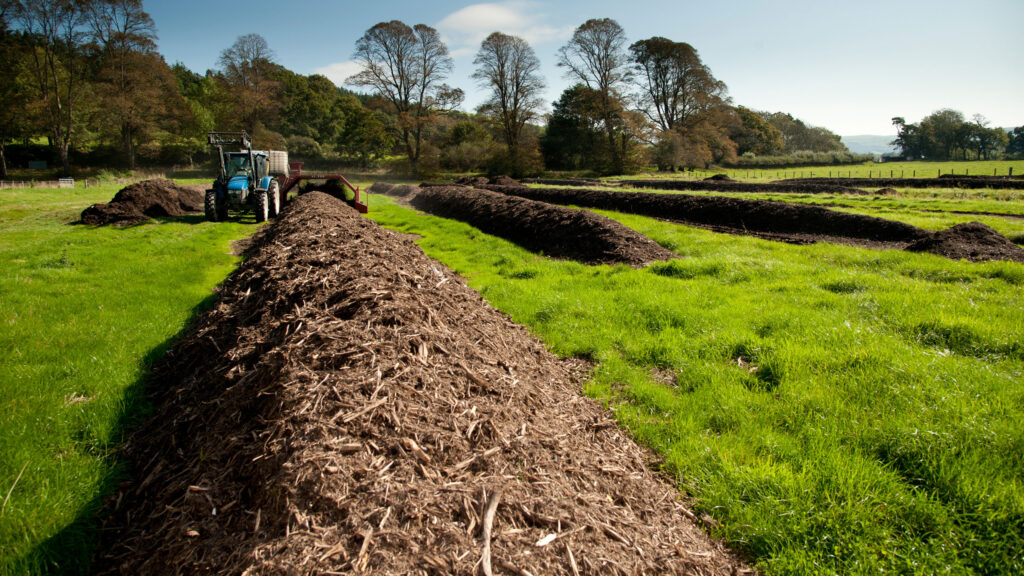Opinion: Composting for soil health and rural resilience
 © Redsnapper/Alamy Stock
© Redsnapper/Alamy Stock Every year, vast amounts of nutrient-rich organic matter are lost instead of being returned to our soils, where they could support British farming and soil health.
Instead of treating unavoidable food and garden waste as rubbish, we should be harnessing it as a valuable resource – one that cuts costs for farmers, improves soil fertility, and strengthens rural economies.
Farmers know that healthy soils are the backbone of productive, sustainable agriculture.
See also: Opinion: New planning framework offers farming opportunities
About the author

Martin Lines is the chief executive of the Nature Friendly Farming Network.
Here he sets out the case for making better use of compost in commercial food production
Yet more than 80% of household food waste is still incinerated, sent to landfill, or wasted, rather than being recycled into compost to rebuild our soils.
With millions more tonnes set to be collected this year from businesses, and from households from 2026 under new policies, we have a huge opportunity.
Compost isn’t just a way to manage waste; it’s a homegrown solution to rising farm costs and soil degradation. With fertiliser prices still about 50% higher than in early 2022, many farmers are struggling.
Composting offers an alternative that restores soil health, locks in carbon, and improves water retention, helping farms to become less dependent on synthetic fertilisers.
Yet, despite its clear benefits, composting is still underused in British farming.
High transport costs, limited financial support, and inconsistent waste policies make it harder for farmers to access clean, quality compost.
Contamination is another challenge – plastic, glass, and other non-organic waste often ends up in compost collections, making it unusable on farms.
If composting is to work at scale, we need better waste separation and collection systems.
New campaign
A new campaign, Enrich the Earth, has been working to develop this agenda.
It is a coalition of organisations with supporters including the Peat Free Partnership, the Association For Renewable Energy and Clean Technology (REA), and the Royal Horticultural Society.
A new approach means using government fiscal and regulatory powers to support farmers’ access to high-quality affordable compost, helping deliver a level playing field in cost with artificial fertilisers.
Government action can help create a strong demand pull for compost to be delivered to farms across the country.
We also need support for local authorities to improve the quantity and quality of collected organic waste, and a fairer subsidy system that values composting alongside anaerobic digestion (AD).
Government policy
Where households’ and businesses’ organic waste is sent to AD, we need government policy to help deliver better outputs for our soil, requiring the further processing of the end-product digestate (including dewatering) and the promotion of new joint AD and composting plants (which deploy further composting of solid digestate).
At the same time, peat-free growing needs urgent attention. The horticultural industry is under pressure to phase out peat, but without investment in high-quality, sustainable compost, growers can lack practical solutions.
Government support is essential to ensure affordable, effective alternatives that protect natural landscapes.
Stronger action by waste companies and local authorities is also essential to keep compost streams clean and uncontaminated, ensuring the material meets the standards required for agricultural use.
If we get all this right, the benefits will extend far beyond farming. A thriving composting sector means more jobs, stronger rural economies, lower carbon emissions, and healthier soils.
When integrated into national waste and farming policies, composting can transform waste into an asset rather than a burden – building a more sustainable, resilient food system.
We already know what needs to be done. Now, we need leadership and action.
Composting must be at the heart of nature-friendly farming – helping farmers cut costs, rebuild soils, and secure the future of British food production.
The solutions are here. It’s time to make them happen.
